Israeli Prime Minister Naftali Bennett called on world leaders to come together and “collaborate” to prevent malicious activities and protect each other’s countries from cyber warfare.
“Israel is now signing deals with other countries where we share…potential malicious activities. And by a bunch of countries in real-time seeing a potential malicious activity, [it] means we have a much higher chance of saying, ‘Yes, this is malicious,’ because the biggest problem is identifying noise, or distinguishing noise and actual malicious activity…And the issue is to identify who are the bad guys in the big ocean of good guys,” he said.
Bennett was addressing the crowd on the second day of the Cybertech conference in Tel Aviv on Thursday, one of the biggest cybersecurity confabs of the year for Israel and also one of the first to take place almost fully in-person after the waning of the ___ COVID-19 in the country.
Bennett said that if Israel was more in touch with other countries after getting threatened by a similar cyber attack, like Italy, India, and the UK, “within minutes we can defend ourselves.”
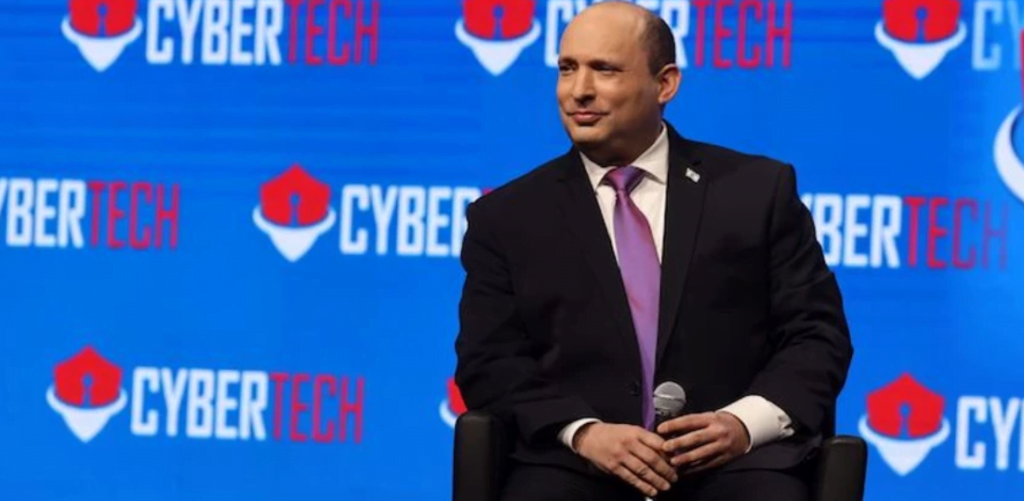
He also touched on the current war in Ukraine, calling it a “responsibility” of the major players in the world to get the two sides out of the battlefield and on to the negotiation table.
The cyber alliance was one of many trends to come out of Cybertech Global TLV 2022, one of the largest cyber technology summits in Israel. The event took place from March 1 – 3. Thousands of visitors from the world were in attendance including top-ranking government officials, leading tech experts, industry executives, entrepreneurs, investors, academics, and major venture capitalists. The event focused on the cybersecurity revolution, including themes like healthcare, economy, privacy, supply chain, ransomware, and many more.
The main themes of the confab also led to a number of incoming cyber trends that were touched upon by speakers, cybersecurity experts, and leading decision-makers. NoCamels highlights five of these trends and how Israel can make an impact on them with solutions, incubators, systems and other forms of innovation.
Cyber alliance
PM Bennett spoke quite a bit about countries, leaders, and cyber experts coming together to form alliances to reduce and thwart cyber risk, threats, and attacks. On the second day of the conference, Yigal Unna, the former Israel National Cyber Directorate chief who was passing the baton to incoming chief Gaby Portnoy after four years on the job, told the audience that the world must be ready as cyber threats continue to increase.
“First of all nations and sectors, we must be much more prepared, much better prepared than when we are talking about Israel, which is pretty good, humbling record. But we need a holistic approach. We need a community approach, working together,” he said.
Erel Margalit, founder, and chair of Jerusalem Venture Partners (JVP) and Margalit Startup City, spoke on Wednesday about the importance of a cyber alliance.
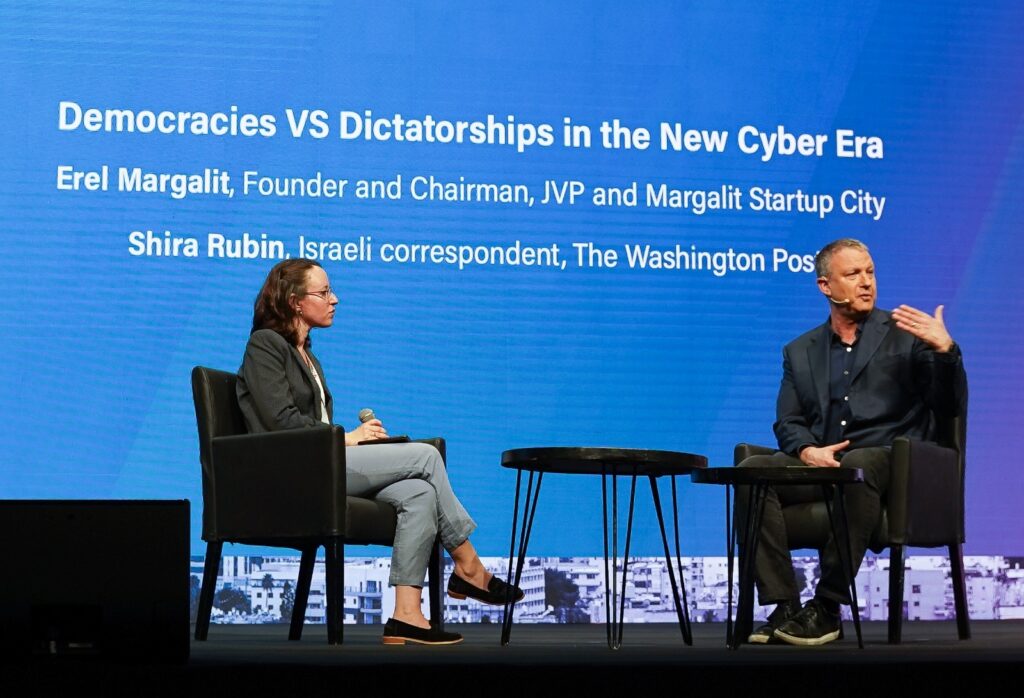
“The current war has proven that the NATO alliance on its own isn’t sufficient. Leadership is required to establish a democratic cyber alliance, including NATO and other free countries, in order to lead values-based cyber that will support democracies and people will say ‘enough!’ to dictators and to those who support him,” he said.
According to Margalit, a former member of the Knesset where he served as the head of the Subcommittee for Cyber Defense, one of the ways to establish a global cyber alliance is through the establishment of a global CERT (Computer Emergency Response Team), in which each democratic country is connected to existing CERT centers and shares a responsibility to exchange information and intelligence, prevent attacks, and to deal with them correctly when they happen.
Security for digital payment solutions
In his talk “The Meaningful Yes – How To Make Security Policies Meaningful To Your Business,” with Team8’s CTO Gal Hochberg on Wednesday, co-founder Nadav Zafrir, a former chief in the IDF’s elite Unit 8200, told the audience that it’s possible that Russian hackers could block Western leaders from getting access to the SWIFT banking system in response to the sanctions against it. There’s no way to know how this would “unfold,” Zafrir said, noting that Russia’s offensive and defensive cybersecurity capacities were pretty sound.
They could say, “If we cannot use SWIFT, we can take you off your SWIFT system as well,” Zafrir said.
A payment system is needed for the generation after SWIFT, many of the conference speakers declared during the event. Whether this means a digital payment solution (likely) or a banking one, the consensus is clear that payment systems need protection. As more digital payment systems become more prevalent, more cybersecurity systems are needed to secure these payment solutions.

Bennett knows this concept quite well. In fact, it was the idea behind Cyota, a company he co-founded with Michal Tsur (who interviewed him at Cybertech), Ben Enosh, and Lior Golan in 1999 and later sold to RSA Security in 2005 for a cool $145 million when the Start-Up Nation (and cybersecurity) was really just starting to blossom. Cyota was an information security company that specialized in online banking software, and services, as well as securing credit card transactions on the Internet.
“In the early [days], you buy a product and sometimes send a check in an envelope because people didn’t trust the internet and were afraid of buying on the internet.” That’s not the case today when digitalization, amid the COVID pandemic prevails. According to Bennett, that doesn’t mean living behind barriers. “If you look at the world through a prism of security only, then we’ll all be behind gates and walls and cloistered during COVID, we could stay at home forever, and there wouldn’t be COVID. But there wouldn’t be life.” So the main challenge and the main objective is to lead reasonable and good lives amid security and not turn security into the main issue.
“The next stage of the war is the war on the financial realm,” said Margalit, a day before Bennett’s appearance. “Even the economic and commercial sanctions that the NATO countries have imposed on Russia, at the heart of which is SWIFT, are not suitable for the new world of digital payments. A payment system is needed for the generation after SWIFT to allow the transfer of legitimate money and to block the transfer of money to criminals, dictators, and those who fund them.”
Margalit referred to a company that is doing this now. ThetaRay, from the portfolio of JVP, a company that Margalit founded, is establishing a new level of trust in the global financial system. ThetaRay’s technology allows the transfer of payments around the world by both people and organizations and prevents suspicious transfers by totalitarian regimes and criminals. This system can replace SWIFT and allow the safe transfer of funds to legitimate people or organizations and can be the answer when it comes to enforcing targeted sanctions on Russia, Margalit said.
Security for electrical infrastructures
Russia could attack national electric grids at any moment, says Yosi Shneck, senior cyber consultant and former SVP of Information and Communication at Israel Electric Corporation, tells NoCamels.
“Electrical infrastructures are one of the main targets for a national cyber attack,” he says. “
Electrical infrastructures are one of the main targets for a national cyber attack, Yosi Shneck Former SVP of Information and Communication at Israel Electric Corporation” tells NoCamels. ”I see that in the following years, cyber will be the ultimate weapon; it will be much more used than conventional systems like tanks and rockets.”
Sign up for our free weekly newsletter
Subscribe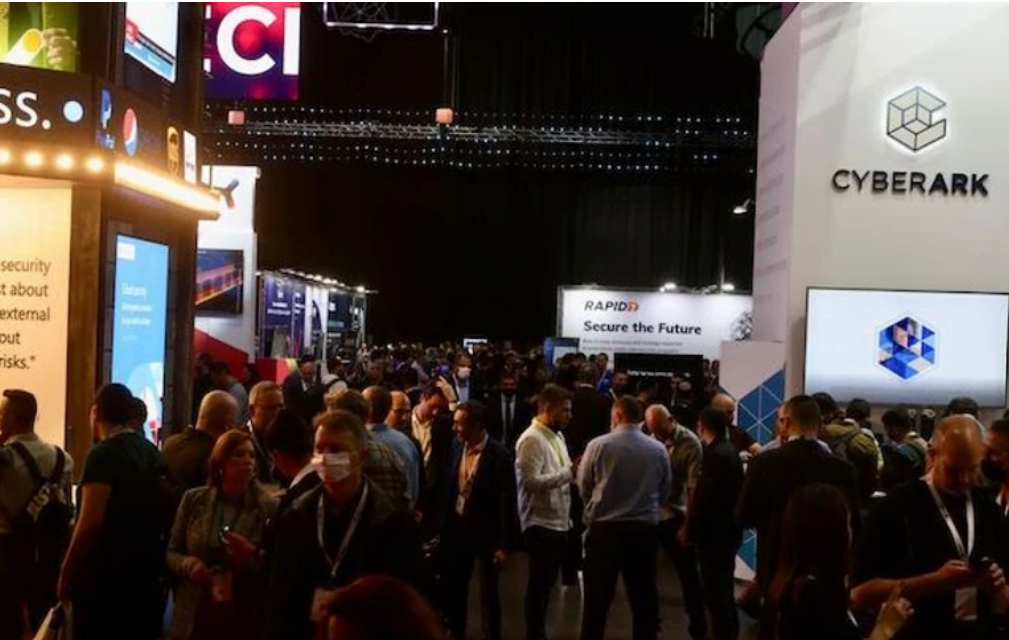
As for Israel’s electric grid system, Shneck explains, “Israel is an electrical Island. We don’t have any connection to our neighboring countries that can provide us backup electricity if something happens, so everything depends on us.”
In response, the Israel Electric Corporation created an advanced simulation environment where engineers gain first-hand training on electrical cyber attacks. This is IEC’s CyberGym, a cybersecurity training and coaching provider, that provides tailored cyber-training solutions to organizations around the world. IEC’s CyberGym was one of hundreds of exhibits and startups showcased in a main area during the event.
Additionally, IEC “created a unique model for IoT,” Shneck explains. “We created a model that has additional components to build sturdiness around the IoT.” Out of necessity, Israel has developed advanced cyber security for electrical grids and as Shneck says, is helping other nations protect their electricity.
In 2018, the Israel Electric Corporation (IEC) launched a new entrepreneurship and business development unit for the cyber market, headed by Shneck. The new unit operates in Western Europe, the US, South America, and Japan, and has a staff of 12 employees, most of them IEC employees.
Underrepresented communities
A number of organizations, like the Israel Innovation Authority and The Galilee Society, have already been quite outspoken about the need for these communities to help provide jobs and combat the tech employee shortage, and the conference made it obvious that it’s not just wishful thinking.
Israeli PM Bennett made a strong statement when he said that Palestinians were an “untapped pool” of cyber talent and also said he wanted to see Haredim enter the workforce for a few years instead of joining the army. He also mentioned men and women in the periphery “from Sderot and Kiryat Shmona” as well as Israeli Arabs.
Also on Thursday, Israeli Member of the Knesset Mansour Abbas, head of Ra’am, the first Arab party to ever be included in an Israeli coalition, spoke about breaking glass ceilings and the inclusion of the country’s Arab society in the country’s high-tech.
He addressed the need to provide relevant tools, referring to the new five-year government plan for the economic development of Arabs in Israel. “It is actually comprised of 27 plans, and one deals with cyber and hi-tech integration. The government will invest almost NIS 600 million in the Arab society, for its tech advancement. Money is invested in schools, tech parks, hubs, development centers, and more.”
While he said the Arab society has great potential and desire to progress as far as higher education, the “inclination is to pursue healthcare professions,” he said, noting that he wants to go beyond that and get more students interested in high-tech.
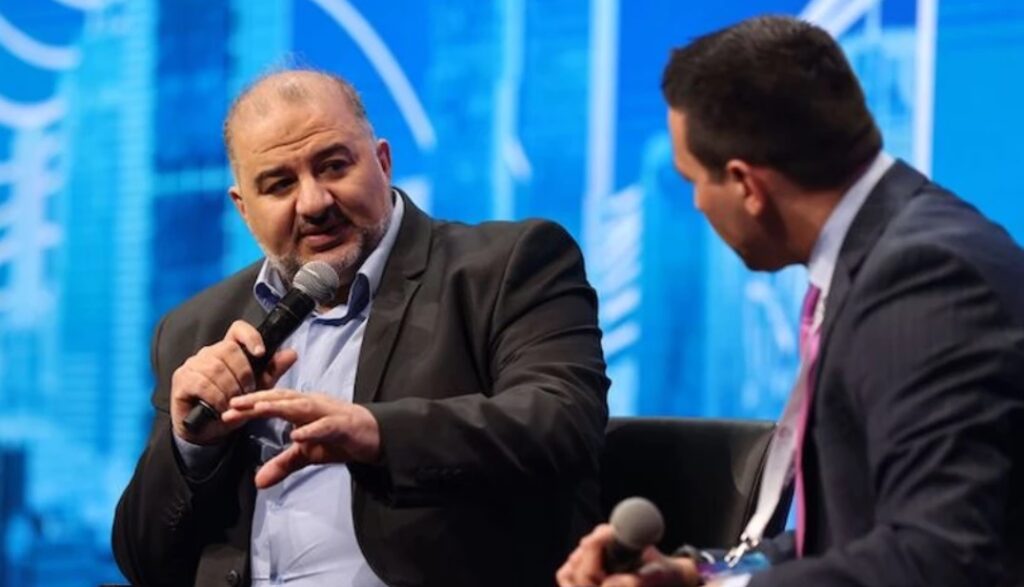
In a panel discussion on underrepresented communities in the Israeli high-tech sector, moderated by Moshe Friedman, the man who co-founded KamaTech, the coalition of 50 large hi-tech companies (Cisco, Google, Microsoft, Intel, IBM, etc.) to help Haredis integrate into the workforce), Raoul Stein of debt solution firm Kreos Capital said integrating underrepresented communities is an “opportunity for everybody, not just a nice thing to do. I think there is a need for the Israeli economy to employ more people in the tech industry. The general talent has been exhausted.”
“I don’t see it as a mission…I see it as a strategic business decision,” agreed Martin Reisner, founder, and CEO of Phone.do, a service that connects businesses and agents around the world.
It was important for Cybertech to devote a number of panels, sessions, and speakers to underrepresented communities. On the morning of the third day, in between speakers Bennett and Netanyahu, the conference featured a talk by Ruth Shoham, CEO of The Open University of Israel on leading women in cybersecurity. She spoke of her own experience, noting that when she was younger, she made the assumption that cybersecurity was for men only. Today, “27 percent of women are in the cyber industry and only a few of them are C-level [executives.] She encouraged more women to study computer science.
Later, Cybertech held a Startup Show featuring startups founded by Israeli Arabs, Ultra-Orthodox Jews, and women.
IOT attacks on the rise
Michal Braverman-Blumenstyk, corporate vice president at Microsoft Corporation, general manager of Israel Research & Development Center, CTO, Cloud and AI security division, and one of the world’s highest-ranking women in the cybersecurity industry spoke about cyber threats and told the crowd that IoT attacks were on the rise, citing news reports of hackers trying to poison the water supply of a Florida town in February 2021, among other headlines.
IoT, which stands for Internet of Things, refers to connected devices, or physical objects that are embedded with sensors, processing ability, software, and other tech that connect and exchange data with other devices and systems over communications networks, like the Internet. An IoT attack can include devices, networks, data, and users. Cybercriminals can launch an attack to steal information, take over a system or shut it down.
IoT cyber attacks more than doubled during the first half of 2021, according to anti-virus and computer security service provider Kaspersky. From January to June this year, some 1.51 billion breaches of Internet of Things (IoT) devices took place, Kaspersky reported, an increase from 639 million in 2020.
Braverman-Blumestyk spoke of the top IoT challenges for chief information security officers (CISOs) and said cybersecurity, and IoT security, in particular, needs a holistic approach. She also stressed the need to protect the modern enterprise’s architecture with solutions specific to its different areas, which are all tied together.

She referred to the solution, Microsoft Defender for IoT, a global Microsoft group delivering OT and IoT security, as a possible solution. Defender has even more tech under its belt than just being part of Microsoft Israel. In June 2020, Microsoft confirmed the acquisition of CyberX, an Israeli firm developing cybersecurity solutions for industrial and critical infrastructure IoT in areas like energy, oil, gas, pharmaceuticals, water utilities, and more. CyberX will “complement the existing Azure IoT security capabilities, and extends to existing devices including those used in industrial IoT, Operational Technology and infrastructure scenarios,” Michal Braverman-Blumenstyk wrote in a blog post at the time.
Other IoT security companies from Israel, featured at Cybertech 2022 and elsewhere, have also made an impact. There’s Aruba, a sponsor of the conference, specializing in Network-As-A-Service solutions and perhaps the most well-known of the Israeli IoT security companies, Armis, a company with a solution that eliminates IoT security blind spots, which has more than tripled its valuation since it was acquired by NY-based firm Insight Partners in January 2020 at a value of $1.1 billion.
Related posts

Editors’ & Readers’ Choice: 10 Favorite NoCamels Articles

Forward Facing: What Does The Future Hold For Israeli High-Tech?

Impact Innovation: Israeli Startups That Could Shape Our Future


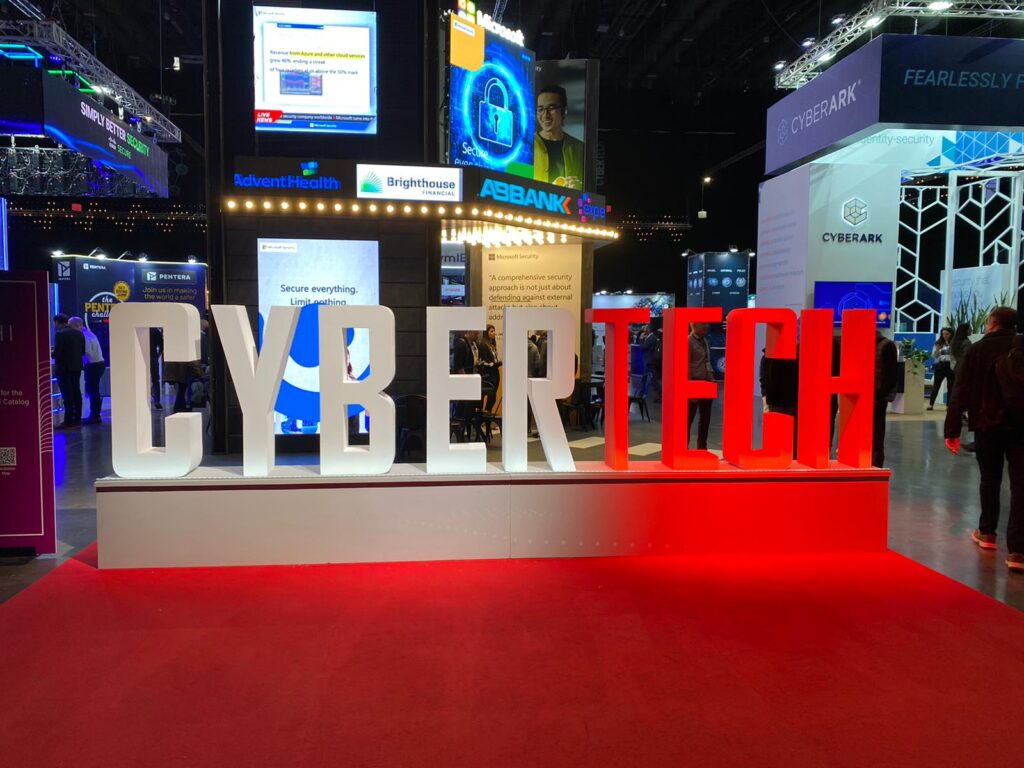

Facebook comments